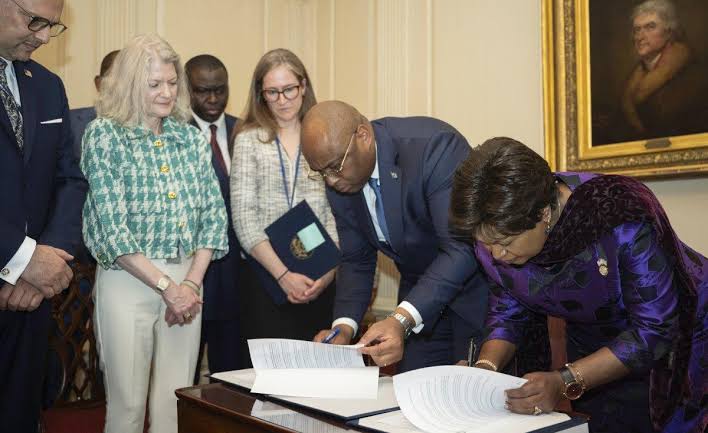
The Democratic Republic of Congo (DRC) and Rwanda are set to formalize a comprehensive peace agreement on 27 June, marking a significant step toward ending decades of tension and recurring cross-border hostilities.
Leaders from both nations, including President Félix Tshisekedi and President Paul Kagame, are scheduled to meet for a high-level signing ceremony. The accord aims to address key issues such as cross-border security, the disarmament of rebel groups, and the return and reintegration of refugees and internally displaced persons.
The agreement is expected to include joint mechanisms for troop withdrawal, enhanced border surveillance, and a shared intelligence framework to prevent future armed incursions. It also outlines a coordinated plan to promote economic collaboration, infrastructure development, and agricultural trade in border regions.
In the weeks leading up to the signing, both governments have engaged in intensive negotiations, facilitated by regional bodies and international mediators. Community and civil society representatives from both sides have been invited to witness the event, reinforcing hopes that peace will be inclusive and locally anchored.
The peace protocol comes after renewed fighting earlier this year, during which elements of the M23 rebel group crossed the border into eastern DRC with alleged Rwandan support claims both governments deny.
Upon signing, the two nations will begin deploying joint commissions to oversee the implementation of security provisions and economic cooperation. A regional summit scheduled later in the year will review the accord’s first-phase impact and outline steps for deeper integration.
Regional analysts are optimistic, noting that if successfully implemented, the agreement could significantly reduce conflict in the volatile eastern provinces of the DRC, unlock cross-border investment opportunities, and foster stability across the Great Lakes region.
As anticipation builds ahead of the ceremony in late June, both Kinshasa and Kigali are urging public participation and patience, highlighting that long-term peace depends on sustained political commitment, robust local engagement, and cross-border coordination.

